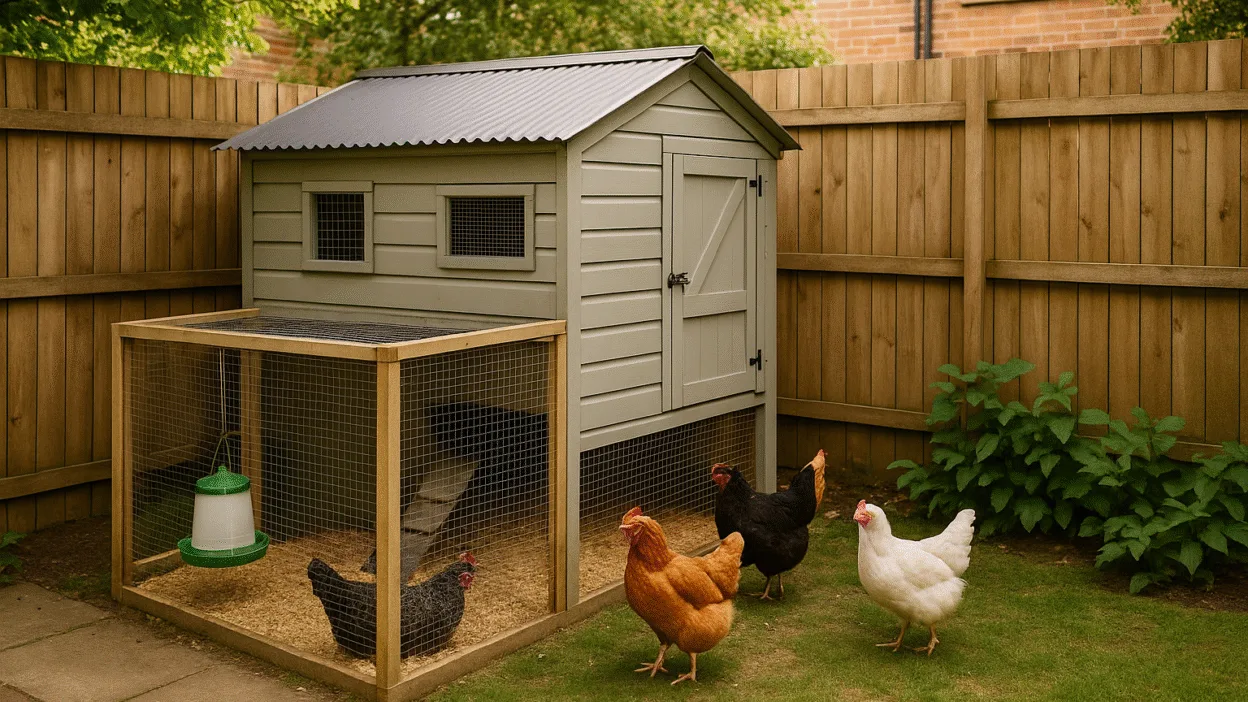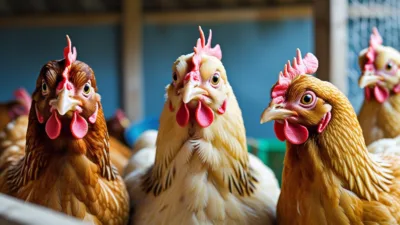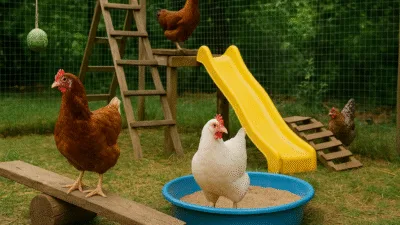Keeping chickens in an urban environment comes with its own set of challenges and biosecurity is one of the most important. Biosecurity simply means taking steps to protect your flock from diseases, pests, and harmful bacteria.
Even if you only have a small backyard flock, practicing good biosecurity can help prevent illness, keep your birds healthy, and ensure you keep enjoying fresh eggs year-round.
Why Biosecurity Matters for Urban Flocks
Urban chickens may seem safe from rural farm diseases, but they are still at risk. Wild birds, rodents, visiting pets, and even your own shoes can carry pathogens into your coop.
Illness can spread quickly in a small flock, and recovery is often costly or impossible. Prevention is always better than cure.
1. Limit Visitors to Your Coop
- Keep non-essential visitors out of your chicken area.
- If friends or neighbors have their own flocks, ask them not to visit after handling their birds.
- Use a “flock-only” pair of boots or shoes when entering the coop.
2. Keep the Coop Clean
- Remove droppings daily or at least several times a week.
- Replace bedding regularly to prevent ammonia build-up and bacteria growth.
- Clean and disinfect feeders and waterers once a week.
3. Control Rodents and Wild Birds
- Store chicken feed in sealed metal bins to avoid attracting pests.
- Install netting or wire over the run to prevent wild birds from mingling with your flock.
- Remove spilled feed promptly.
4. Quarantine New or Sick Birds
- Always isolate new chickens for at least 14 days before introducing them to the flock.
- Separate sick birds immediately to avoid spreading illness.
- Use separate tools and feeders for quarantined birds.
5. Provide Clean Feed and Water
- Offer fresh water daily, especially in hot weather.
- Use clean containers to prevent algae and bacteria growth.
- Avoid feeding moldy or spoiled food scraps.
6. Wash Your Hands After Handling Chickens
- Always wash your hands after touching chickens, eggs, or coop surfaces.
- Keep hand sanitizer near your coop for quick use.
- Teach children safe handling practices.
Final Thoughts
Biosecurity doesn’t need to be complicated. By following these easy steps, urban chicken owners can protect their flocks from illness, reduce stress for their birds, and keep egg production steady. Prevention takes just a few minutes a day, but it can save you the heartbreak and cost of losing your chickens to preventable diseases.



